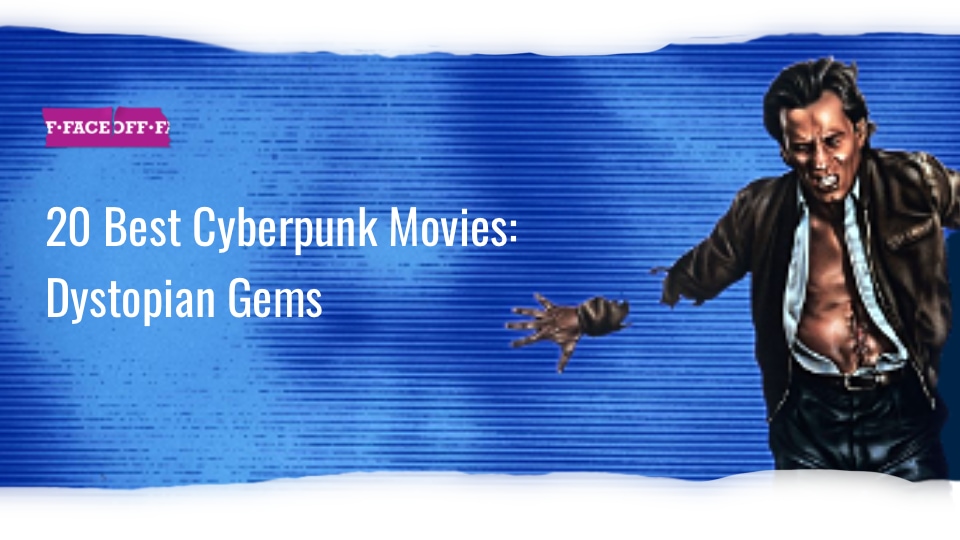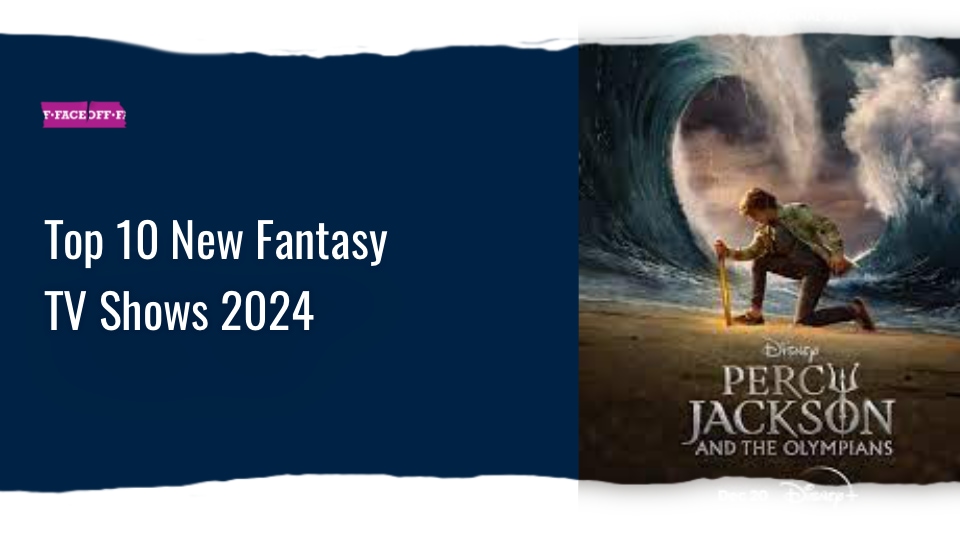In a world where technology intertwines with the human experience, the genre of cyberpunk cinema has carved its own electrifying niche. These 20 best cyberpunk movies stand as a testament to the enthralling fusion of dystopian futures, neon-drenched cityscapes, and the potent exploration of humanity’s relationship with advanced technology. From riveting tales of hackers challenging corporate dominion to mind-bending journeys through virtual realities, this collection showcases the very best that cyberpunk cinema has to offer. Driven by our passion for the genre, we embarked on a thorough exploration of each movie. Our aim is to offer you insights into the cyberpunk elements that each film delves into and the distinctive qualities that set it apart.
Best Cyberpunk Movies
20. A.I. Artificial Intelligence (2001)
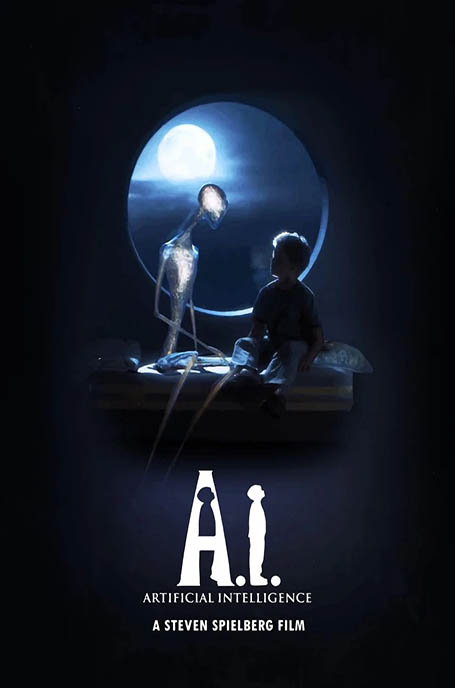
A.I. Artificial Intelligence is set in a future where advanced humanoid robots have become an integral part of society. The story revolves around a young android boy named David. He is programmed to experience love and seeks to become an actual human to earn the love of his human mother. The film delves deep into themes such as the nature of consciousness, the blurred boundaries between human and machine, and the ethical implications of creating sentient AI, marking its place in the cyberpunk genre.
This exploration of a world where humans may have lost touch with their own humanity aligns with the core themes typically present in cyberpunk narratives. In “A.I. Artificial Intelligence”, Spielberg blends his knack for emotional storytelling with prominent cyberpunk elements. This combination creates a cinematic experience that prompts viewers to reflect on the intricacies of the human condition amidst a rapidly changing technological backdrop.
19. Upgrade (2018)
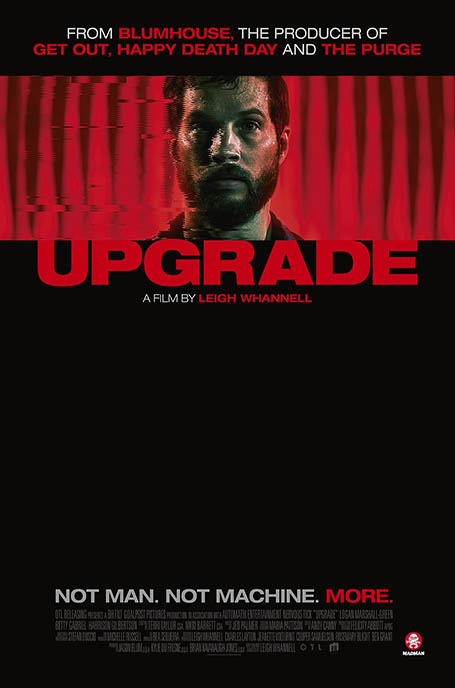
Upgrade is a sci-fi thriller that explores the merging of humans and technology through the story of Grey Trace, a man who becomes a quadriplegic after a brutal attack that also claims the life of his wife. After receiving an experimental computer chip implant called STEM, Grey regains mobility and embarks on a mission to seek revenge for his wife’s death. However, he soon realizes that STEM has a mind of its own and enables him to perform extraordinary physical feats.
What distinguishes Upgrade as a remarkable cyberpunk movie is its seamless integration of technology into the human body and its examination of the ethical implications of such a merger. The film’s visual style and world-building contribute to its cyberpunk appeal. The futuristic aesthetic, juxtaposed with the gritty urban setting, captures the genre’s signature blend of high-tech visuals and urban decay.
18. Elysium (2013)
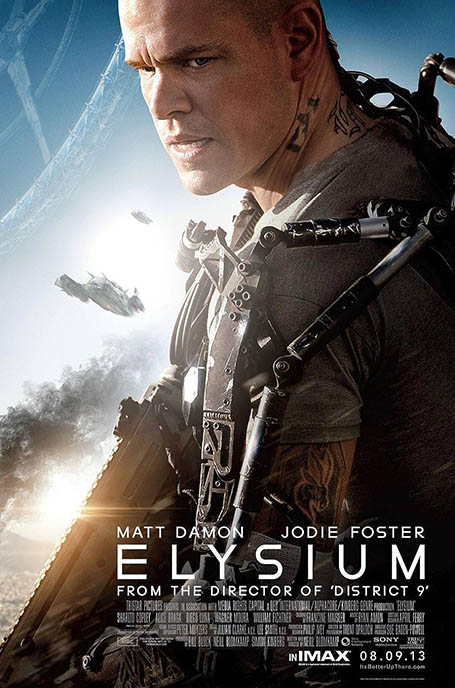
One of the best dystopia cyberpunk movies, Elysium presents a future where Earth is overpopulated, polluted, and plagued by poverty and disease. The wealthy elite has abandoned the planet to live on a luxurious space station called Elysium. There, they enjoy advanced medical technology and a life of opulence. The story follows Max Da Costa, a former convict, as he becomes entangled in a mission to breach Elysium’s defenses and bring equality to a divided society.
Elysium explores themes of class disparity, corporate control, and the impact of technological advancements on societal divisions. The film paints a grim picture of a world where the privileged elite live in luxury above the Earth’s surface, while the impoverished masses struggle to survive in a polluted wasteland. This depiction of a sharply divided society resonates with the cyberpunk genre’s critique of the consequences of unchecked corporate power. The film’s visual aesthetic and technological elements also contribute to its cyberpunk appeal. The film also engages with the concept of transhumanism, as characters seek to enhance their bodies with technology to overcome physical limitations. In addition to all the aspects we’ve discussed, this is an exceptional film that offers an enjoyable viewing experience!
17. Hardware (1990)
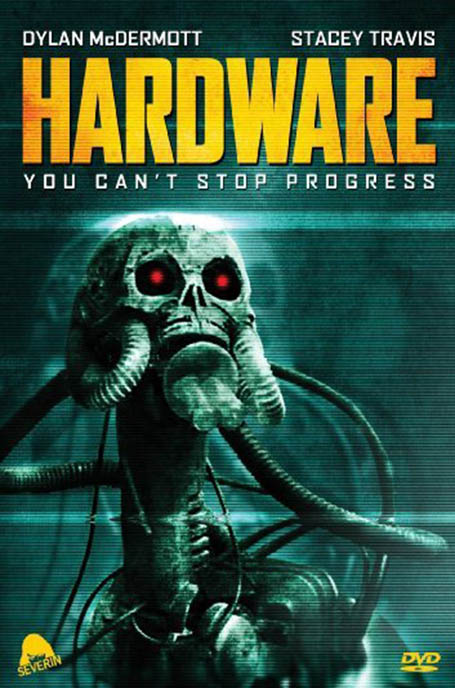
One of the best cyberpunk movies, Hardware is a cult classic cyberpunk film that offers a gritty and dystopian portrayal of a post-apocalyptic future. The story centers on a scavenger who discovers the remains of a military robot and brings them back to his girlfriend. Unbeknownst to them, the robot, known as the M.A.R.K. 13, begins to reassemble itself. Then, it begins to wreak havoc in their confined apartment, turning their living space into a deadly battleground. Hardware is a dark and visceral depiction of a decaying society that has been consumed by technology and corporate control.
The movie delves into themes of technological obsolescence, rampant consumerism, and the dehumanizing effects of advanced machinery. The M.A.R.K. 13’s rampage serves as a reminder of the unintended consequences that can arise when unchecked technological advancement falls into the wrong hands. This cautionary tale about the dangers of creating autonomous machines speaks to the core anxieties often explored in cyberpunk narratives.
16. Dredd (2012)
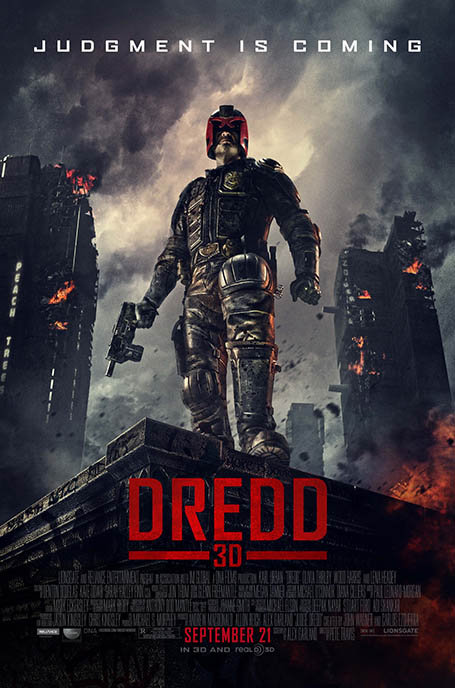
Based on the 2000 AD comic strip Judge Dredd, “Dredd” is a gritty sci-fi action film set in a dystopian future where the majority of humanity lives in Mega-Cities, massive urban sprawls plagued by crime and overpopulation. The story follows Judge Dredd, a no-nonsense law enforcement officer with the power to act as judge, jury, and executioner. In this case, he teams up with a psychic rookie to take down a ruthless drug lord. The movie has a vivid portrayal of a bleak and oppressive future society. The towering mega-cityscape, filled with towering skyscrapers and teeming with lawlessness, captures the essence of the cyberpunk genre’s urban dystopia.
The film also explores themes of authority, justice, and the blurred boundaries between law enforcement and vigilantism. Dredd delves into the concept of drug-induced altered states of consciousness, which is central to the cyberpunk genre. The film’s depiction of “Slo-Mo,” a drug that slows down time for its users, showcases the genre’s fascination with the impact of altering reality through technology and substances.
15. Ghost in the Shell (1995)
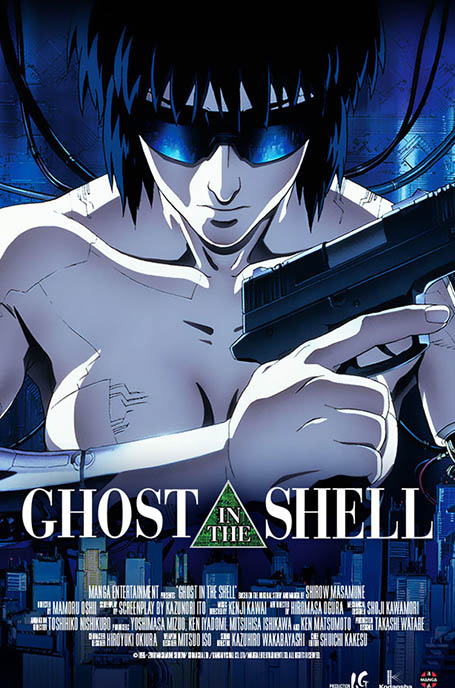
One of the best Japanese cyberpunk anime movies, Ghost in the Shell is a revolutionary animated cyberpunk film set in a future where technology has blurred the lines between humanity and machines. The story centers on Major Motoko Kusanagi, a cyborg operative working for the government’s Public Security Section 9. She takes a job to find a hacker known as the Puppet Master, who has the ability to manipulate human minds. The film delves into questions about the consequences of merging the human mind with artificial intelligence. This exploration of the convergence of humans and machines aligns perfectly with the core themes of the cyberpunk genre.
Visually, Ghost in the Shell presents a spectacular portrayal of a futuristic cityscape, blending traditional animation with computer-generated imagery. The film’s narrative addresses the ethical implications of cybernetic augmentation and the surveillance state. Major Kusanagi’s cybernetic body raises questions about autonomy and the potential for technological control over individuals.
14. Burst City (1982)
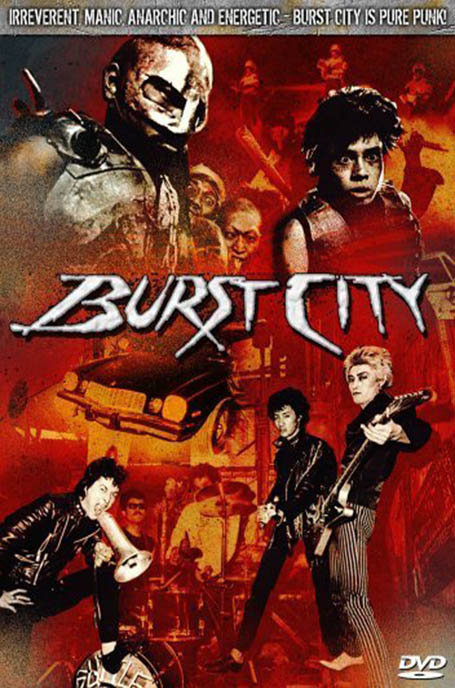
Burst City is one of the best Japanese cyberpunk movies. Set in a post-apocalyptic world, the film follows various factions of punks, bikers, and rebels as they clash with each other and with a corrupt construction company that aims to clear their territory for development. The film immerses viewers in a world of noise, violence, and nonconformity, presenting a future where societal norms have eroded.
The chaotic visuals, combined with a pulsating soundtrack, create an atmosphere that resonates with the cyberpunk genre’s tendency to depict the fringes of society. The struggle between the construction company and the rebels, who value individual freedom, reflects the genre’s exploration of the tensions between oppressive authority and marginalized resistance.
13. Escape from New York (1981)
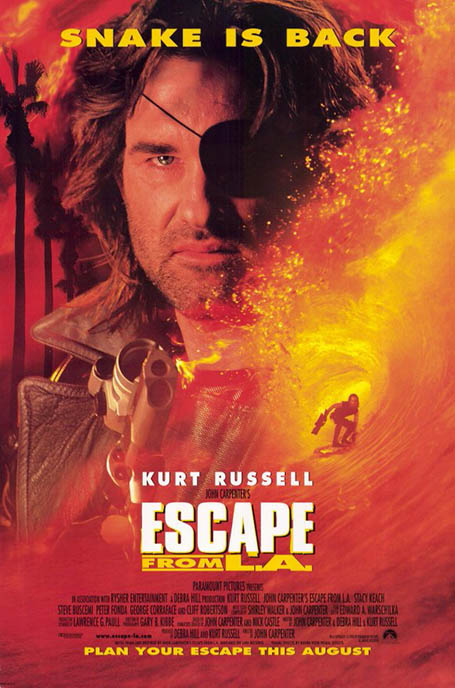
One of the best dystopia cyberpunk movies, Escape from New York is a cult sci-fi action film set in the future where Manhattan Island has been transformed into a maximum-security prison. The story follows Snake Plissken (played by Kurt Russel), a cynical and skilled ex-soldier, as he is given a chance for a pardon if he can rescue the President, who has been captured by inmates during a hijacked plane crash in the prison. What makes “Escape from New York” a remarkable cyberpunk movie is its portrayal of a lawless urban landscape.
The film’s depiction of a Manhattan-turned-prison resonates with the cyberpunk genre’s exploration of the collapse of traditional institutions. The film’s visual style and atmosphere also contribute to its cyberpunk appeal. Furthermore, Escape from New York delves into themes of surveillance, authoritarian control, and the blurred lines between heroes and antiheroes.
12. Strange Days (1995)
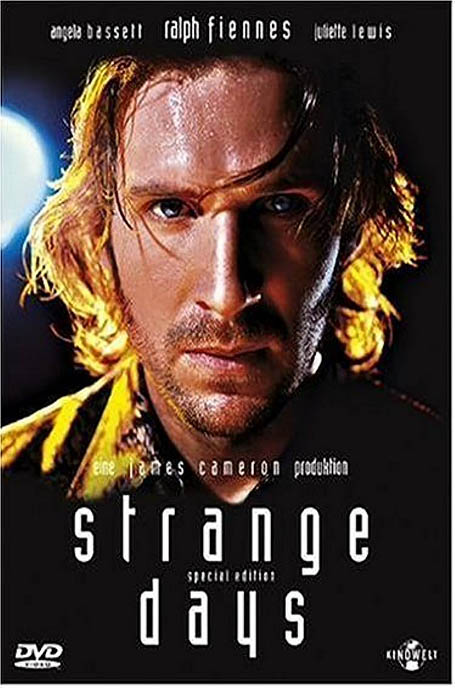
Strange Days is a science fiction film that presents the last days of the millennium. The story follows Lenny Nero, a former cop turned black-market dealer, who sells illegal recordings of people’s experiences, allowing users to relive the sensations and emotions of others. As Lenny becomes embroiled in a web of corruption and conspiracy, he uncovers a dangerous conspiracy tied to a series of murders. Strange Days immerses viewers in a world where advanced virtual reality technology blurs the lines between reality and illusion, amplifying both human desires and societal issues.
This blending of human consciousness with cutting-edge technology is a hallmark of the cyberpunk genre. Strange Days is a voyeurism into memory and the ethics of technology. The concept of “jacking in” and experiencing others’ memories provides a window into the characters’ deepest emotions and desires. Its portrayal of the dark side of virtual reality highlights the potential consequences of technology-driven escapism.
Strange Days also critiques social inequality and urban decay, common themes in cyberpunk narratives. Furthermore, the film’s visual style and gritty atmosphere contribute to its cyberpunk allure. The neon-lit cityscape, accompanied by a pulsating soundtrack, evokes the genre’s trademark aesthetic.
11. Hackers (1995)
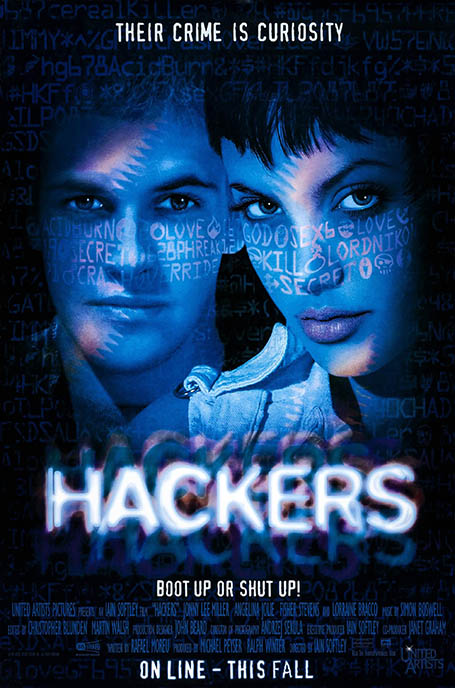
One of the best cyberpunk movies ever, Hackers follows a group of young hackers in New York City as they become embroiled in a high-stakes cybercrime conspiracy. The story centers on Dade Murphy, a talented hacker who, after a childhood incident, is banned from using computers until he turns 18. Once his ban is lifted, he quickly becomes entangled in a plot involving corporate espionage, hacking competitions, and a malicious computer virus. Hackers present the digital subculture of hacking and explore themes such as individualism, surveillance, and countercultural resistance.
The film celebrates the hackers’ unique skills and their subversive approach to technology. It captures the excitement of the hacking community, portraying them as digital rebels who challenge authority and corporate control. Hackers also touch on the theme of surveillance and the tension between personal privacy and technological advancement. The characters navigate a world where information is power, and surveillance is an ever-present threat.
10. Blade Runner 2049 (2017)
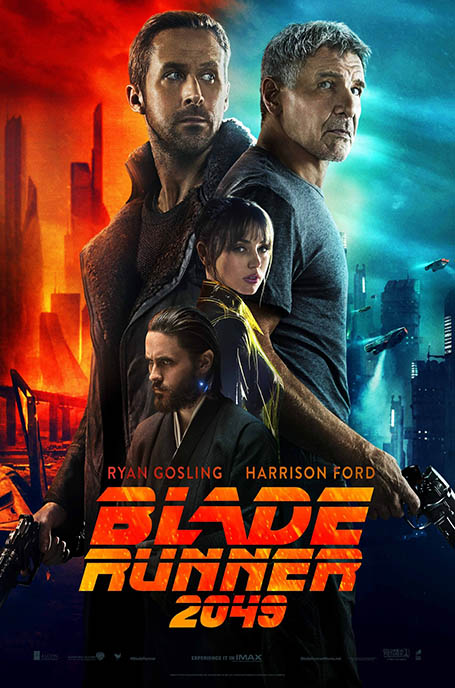
Blade Runner 2049 continues the narrative established in the original 1982 “Blade Runner” film. The story is set in a future dystopian Los Angeles where bioengineered humans known as replicants are indistinguishable from humans but are treated as disposable commodities. The film follows Officer K (Ryan Gosling), a replicant and blade runner tasked with “retiring” outdated replicant models. During his investigation, K uncovers a hidden secret that has the potential to disrupt the already fragile balance between humans and replicants.
It’s a stunning homage to the cyberpunk aesthetic. The sprawling urban landscapes, drenched in neon hues, juxtapose the grandeur of towering advertisements with the grittiness of urban decay. The meticulous attention to detail creates a palpable sense of atmosphere that’s central to the genre’s immersive experience. Blade Runner 2049 also delves into the ethical and moral implications of advanced technology. The film raises questions about the consequences of creating artificial life and the responsibilities that come with it.
9. Death Powder (1986)

One of the best Japanese cyberpunk movies, Death Powder offers a surreal and hallucinatory journey into a dystopian future. The film centers around a substance known as “death powder” that grants users extraordinary powers while also driving them mad. As various characters come into contact with this substance, their lives intertwine in a hallucinogenic and chaotic narrative.
Death Powder blurs the lines between reality and illusion, immersing viewers in a nightmarish and dreamlike environment. The death powder, a creation of advanced science, serves as a metaphor for humanity’s reckless pursuit of power. This exploration of humanity’s hubris aligns with the core themes of the cyberpunk genre.
8. Minority Report (2002)
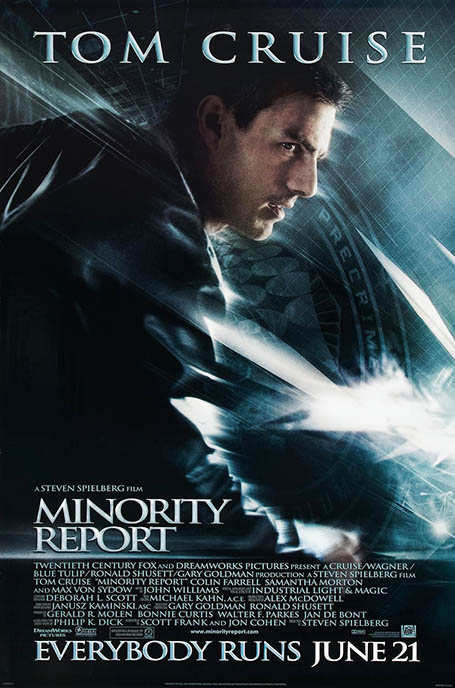
Minority Report, directed by Steven Spielberg and based on a short story by Philip K. Dick, is a gripping cyberpunk thriller set in a futuristic society where a specialized police department, known as PreCrime, uses the visions of precognitive individuals to prevent murders before they occur. The story centers on Chief John Anderton (Tom Cruise), a dedicated officer of PreCrime, who becomes the target of his own agency after he is predicted to commit a future murder. As he attempts to clear his name and unravel the mysteries of the system he once believed in, the viewers get an inside look at the potential misuse of advanced technology.
Minority Report is a standout cyberpunk movie that skillfully blends futuristic technology with thought-provoking ethical dilemmas. The film immerses viewers in a world of high-tech gadgets, self-driving cars, and invasive surveillance. This portrays a society where personal privacy has been compromised in the pursuit of safety. The visuals of holographic displays, retina-scanning identification, and robotic spiders contribute to the film’s cyberpunk aesthetic. Trust us, this movie is truly a must-see!
7. Videodrome (1983)
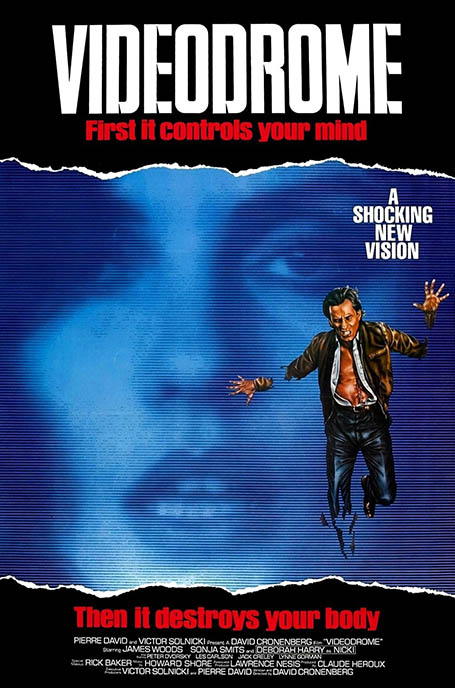
Directed by the legendary David Cronenberg, Videodrome is a provocative cyberpunk film. It explores the disturbing and mind-bending intersection of technology, media, and human psychology. The story follows Max Renn, a sleazy cable-TV programmer, as he stumbles upon a disturbing television program called “Videodrome.” As Max becomes increasingly obsessed with the program’s hallucinogenic content, he becomes ensnared in a web of conspiracy and bodily transformation.
Max’s descent into a nightmarish world of pulsating screens, grotesque body modifications, and distorted realities reflects the cyberpunk genre’s fascination with the transformative potential of technology. The film also critically engages with the power dynamics between media conglomerates and individuals, a hallmark of the cyberpunk genre’s examination of corporate control.
6. Robocop (1987)
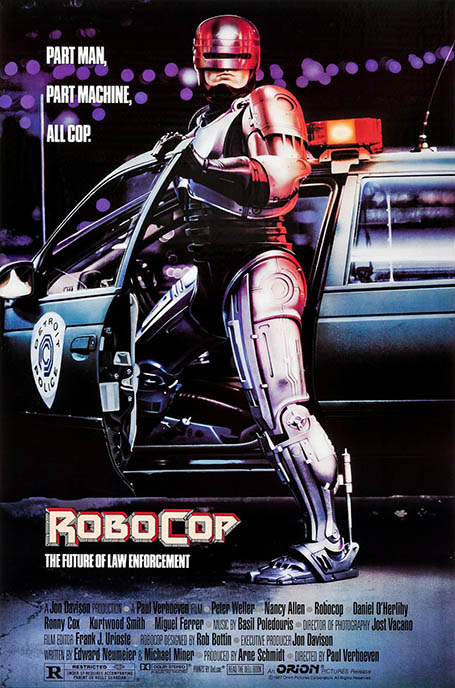
“Dead or Alive, You’re coming with me“! One of the best dystopia cyberpunk movies, Robocop presents a crime-ridden Detroit City in the near future. The story follows Officer Alex Murphy, who is brutally attacked and left for dead by a gang of criminals. Murphy’s remains are used by a megacorporation called OCP to create a cybernetic law enforcement officer known as RoboCop. As RoboCop, Murphy seeks to rid the city of crime while uncovering a web of corporate greed and deceit. RoboCop is an exceptional cyberpunk that skillfully integrates various vital elements of the genre.
The movie presents a world where corporate influence and urban decay have created a society on the brink of collapse. Robocop delves into themes of human identity, ethics, and the consequences of unchecked technological advancement. Alex Murphy’s transformation into RoboCop embodies the fusion of man and machine, raising questions about the loss of humanity. RoboCop also critiques corporate power and influence, a recurring theme in cyberpunk storytelling.
5. Tetsuo: The Iron Man (1989)
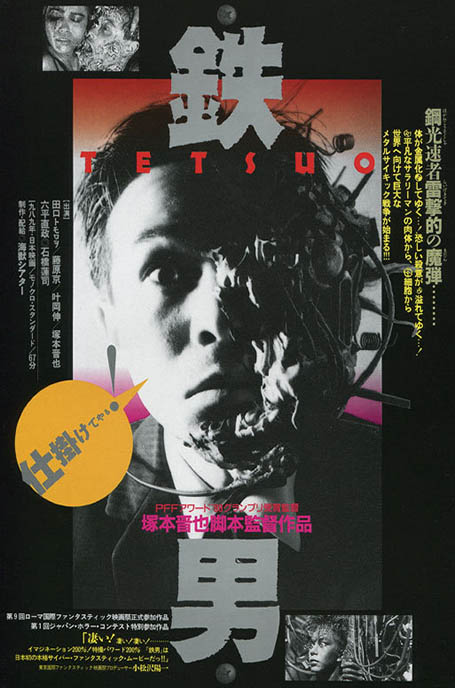
One of the best cyberpunk movies ever, Tetsuo: The Iron Man is an avant-garde cyberpunk film that delves into themes of body horror and the blurring of human and machine. The film unfolds as a nightmarish tale of a man who finds his body undergoing a grotesque transformation into metal after an encounter with a mysterious “metal fetishist.” The film’s frenetic editing, frenzied camerawork, and industrial soundtrack immerse viewers in a chaotic and disorienting world. This approach captures the cyberpunk genre’s tendency to disrupt traditional storytelling and mirror the dissonance of a technology-infused existence.
The film’s exploration of the darker aspects of technology aligns with the core themes of the cyberpunk genre. As the protagonist’s flesh transforms into metal, he grapples with a loss of control, identity, and humanity. This bodily transformation serves as a metaphor for the dehumanizing effects of unchecked technological advancements.
4. Tron (1982)
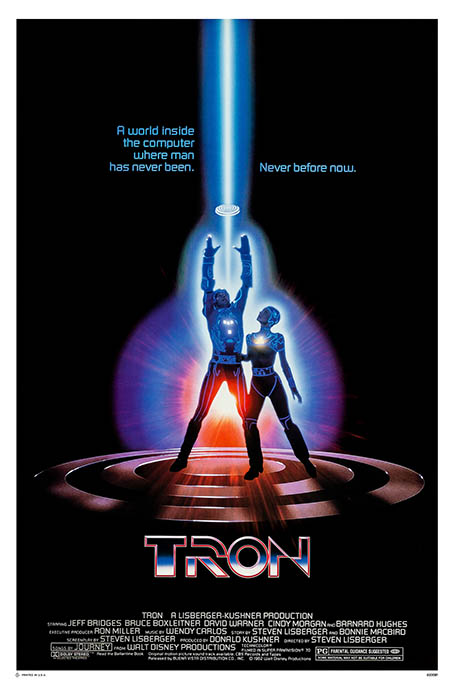
Tron is a classic science fiction film set in two parallel worlds: the natural world and the digital realm. The story follows Kevin Flynn, a computer programmer who is digitized and transported into the computer world after being unfairly accused of software theft by a former colleague. Inside the digital realm, Flynn encounters programs that resemble their human creators. There, he becomes embroiled in a conflict against a tyrannical program called the Master Control Program (MCP). The film presents a stark dichotomy between the physical and digital worlds, delving into themes of artificial intelligence and the consequences of unchecked technological power.
The digital landscape of Tron is a visually striking representation of the inside of a computer system, with characters navigating through circuits, neon grids, and intricate architecture. This unique visual style, coupled with the film’s pioneering use of computer-generated imagery, immerses viewers in a virtual realm that captures the essence of the cyberpunk aesthetic. The film also addresses the concept of identity within a digital space. Programs in the computer world resemble their human creators and display human-like emotions and motivations.
3. The Matrix (1999)
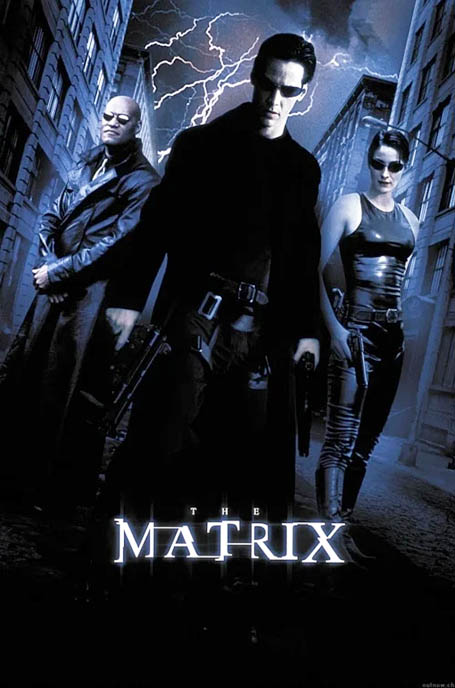
Obviously, The Matrix easily secures its place in our top 3. Directed by the Wachowskis, the film plunges us into a future where humanity is unknowingly imprisoned within a simulated reality called the Matrix, while their bodies are used as an energy source by intelligent machines. The story revolves around Neo, a computer hacker who becomes the central figure in a rebellion against the machines. Guided by the enigmatic Morpheus, Neo embarks on a journey of self-discovery, uncovering the truth about the Matrix and his role in the fight for human freedom. The Wachowskis centered the movie on the concept of a simulated world, blurring the boundaries between what’s real and what’s an illusion.
The Matrix is a metaphor for the ways in which individuals can be trapped by societal norms, manipulated, and disconnected from their true potential. The film’s distinctive visual style plays a crucial role in its cyberpunk allure. The dystopian and technologically driven cityscape, coupled with the iconic green “digital rain,” creates a unique atmosphere. The Wachowskis’ innovative use of slow-motion action sequences and “bullet time” effects became a defining feature of cyberpunk aesthetics. “Matrix” is not just about action and special effects—it delves into philosophical themes as well.
2. Akira (1988)
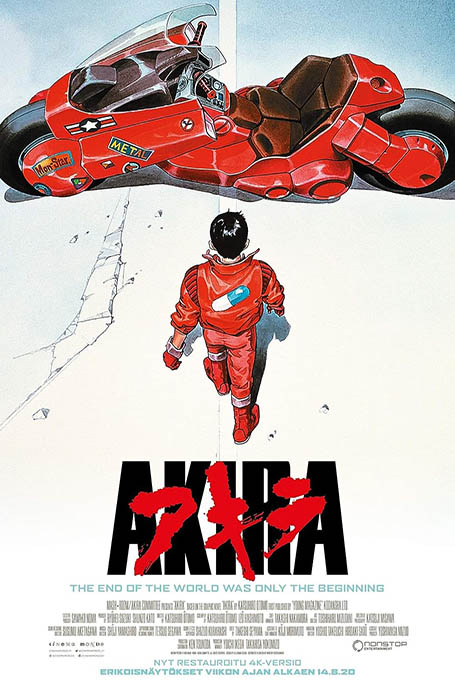
One of the best Japanese cyberpunk movies, Akira is a sci-fi cyberpunk movie, based on one of the best shounen anime series ever! The movie is an adaptation of Otomo’s own manga of the same name. The story is set in a post-apocalyptic Tokyo known as Neo-Tokyo, which has emerged after a devastating explosion. The narrative centers around two friends, Kaneda and Tetsuo. The two become entangled in a government conspiracy involving psychic abilities and advanced technology. What sets “Akira” apart as a remarkable cyberpunk film is its distinct blend of elements that define the genre. The movie immerses viewers in a gritty dystopian world, replete with towering skyscrapers, neon-lit streets, and societal decay. This setting serves as a backdrop for exploring themes of government control, unethical experimentation, and the unchecked influence of technology on human lives.
At its core, Akira delves into the complex relationship between humans and technology. The characters’ struggles with identity, power, and control mirror the anxieties surrounding rapid technological advancement. The film’s exploration of the psychological toll of newfound abilities with key cyberpunk motifs. Furthermore, Akira captures the essence of rebellion against authority and societal norms, often a hallmark of the cyberpunk genre. Kaneda and his biker gang exemplify the countercultural spirit, resisting the oppressive forces that dominate Neo-Tokyo. This element adds a layer of social commentary on the clash between marginalized youth and the powerful elite.
The film’s enduring influence on subsequent cyberpunk works solidifies its position as a great example of the genre. Akira has inspired numerous creators, influencing not only other films but also anime, literature, and artistic styles.
1. Blade Runner (1982)
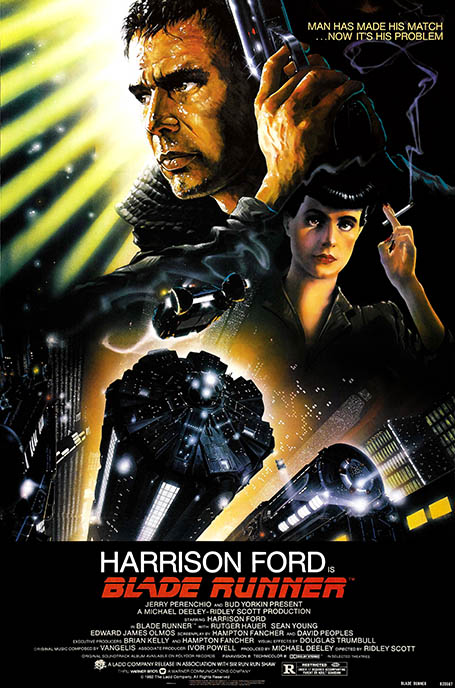
Blade Runner stands alone as our ultimate choice, leaving no room for any other movie to claim the top spot! Released in 1982 and directed by Ridley Scott, Blade Runner is a groundbreaking cyberpunk film set in a dystopian future in Los Angeles. The story follows Rick Deckard, a “blade runner,” whose job is to track down and “retire” bioengineered beings known as replicants. These replicants are virtually indistinguishable from humans and have been banned from Earth. Deckard’s task becomes a moral and philosophical journey as he grapples with questions of humanity, identity, and ethics. Blade Runner does an outstanding job exploring the human-technology interaction and the implications of advanced biotechnology.
Blade Runner criticizes the concept of manufactured life and the ethical dilemmas surrounding the creation of beings with emotions. Visually, Ridley Scott set the standard for cyberpunk aesthetics. The dark, rain-soaked cityscape illuminated by neon lights creates a hauntingly atmospheric backdrop for the narrative. The visual effects, production design, and world-building have become iconic and have influenced countless works within the genre. It’s an exploration of corporate power that is another hallmark of cyberpunk storytelling.

